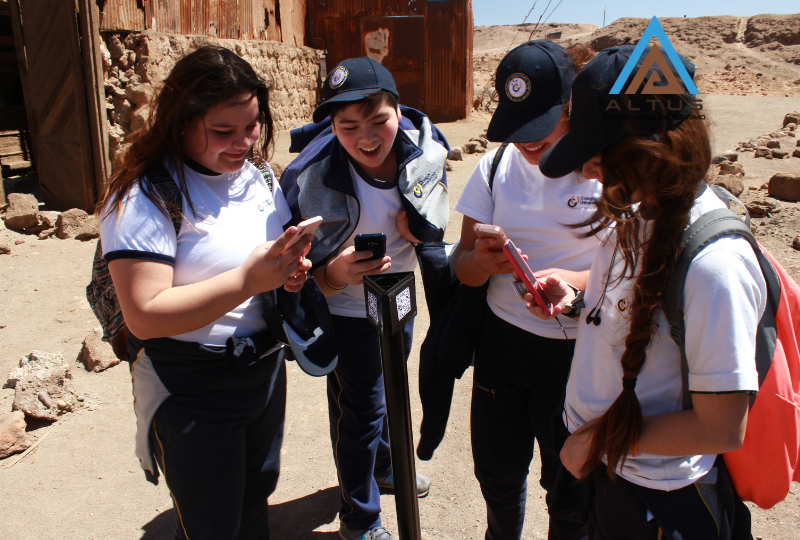
Traveling always presupposes knowing; We can always expand our knowledge about the cultures, people, wildlife and history of the places we visit, assuming of course, if we pay the necessary attention. This action of embarking on a trip always results in both an emotional and learning dynamic; our trips are always recorded in our memory and with them the lessons we have been acquiring.
The current questioning of both the prevailing neoliberal education system and the very future of society in this context (and of the new generations) is known by most, and it is that in many Sometimes we can feel that "children" are increasingly disconnected from their reality and prefer to spend their time "stuck" to a screen. Perhaps we can come to feel that these new generations are living in virtual worlds instead of experiencing the natural and cultural beauty of their surroundings.

And we are not saved from such analysis, usually too worried and stressed to pay attention to all the wonders that surround us. However, we must not forget that the role of education will always be a social one, framed in the circumstances of both the economy and society, this means that both the historical becoming and the economy feed back the educational process and vice versa. They are like this in constant dialogue.
That is why, as an educator, I wanted to highlight the role of tourism in the educational training of not only our children and youth, but ourselves, as educators and actors in this whole process. This is how, through innovative educational and pedagogical experiences within the communities and the territory of the region, I have seen how the understanding and vision of young people expands.
This starts already last year, when the University of Washington contacted us and requested a more educational experience focused on education, they were especially interested in learning about the methods and the traditional medicinal herbs of the Aymara indigenous communities. And in this way, due to the needs presented to us at that time, we gave the initial kick to the development of different educational plans and scientific tourism routes, which focus on transmitting and valuing the culture and natural heritage of the region. And, through tourism, and with appropriate educational activities, fundamental knowledge and skills can be developed in the development of current youth and society. This has generated an interesting challenge, given that the most playful experiences must be combined with the contents established by the Ministry of Education.
During these field trips it is possible to teach many things in addition to the knowledge of the national curriculum, you can also transmit the values and ideals of an education for international understanding, the peace and solidarity; to be able to bring the traveler closer to different cultures, ways of life and worldviews, especially those corresponding to the original peoples. And this development of the tourism industry is of course equally beneficial (or much more) for the same communities, since this allows and encourages interculturalism, an issue that I would like to discuss in depth in future entries in this blog.

The point at which I would like to highlight here, is the privileged opportunity that these field trips and tours with a more educational and scientific approach, is in the transmission of a medium education -environmental, one in which we can reaffirm both the values and the responsibilities of us and of the new generations with respect to the conservation and preservation of our environment. And it is that young people, being able to experience new situations, empathizing with other social and cultural realities, are capable of enormous work, things that would surprise anyone who thinks they are only lethargic all day in front of their cell phones. In future deliveries we will relate more specific experiences with schools and the different actors within the tourist activity.







